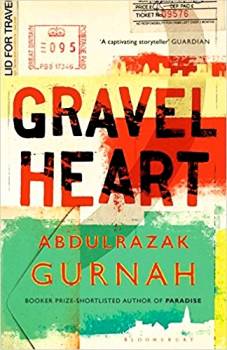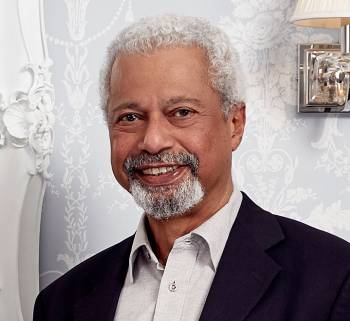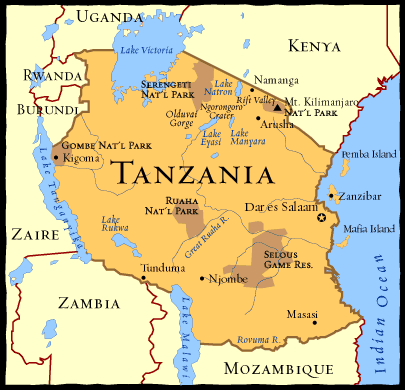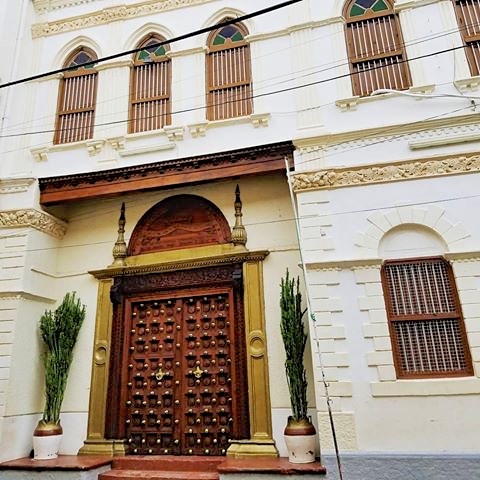“My father did not want me. I came to that knowledge when I was quite young, even before I understood what I was being deprived of and a long time before I could guess the reason for it. In some ways not understanding was a mercy. If this knowledge had come to me when I was older, I might have known how to live with it better but that would probably have been by pretending and hating.”—Salim.
 The author of eight previous novels, many of which have been nominated for international prizes, Abdulrazak Gurnah, from Zanzibar, specializes in novels which reflect a sense of alienation and loss as a person living, first, under the British colonial rule of his country, then later living under Zanzibar’s revolutionary rule after a coup following independence, and finally living in Britain itself. His characters often reflect similar dislocations, growing up and living without the pride one expects for the place where they grew up or much sense of belonging elsewhere within the world order. Sometimes at a loss and uncertain what will happen next politically, they may be unsure of how to go about traversing the multitude of competing influences on their lives and on the people they love. In this novel Gurnah examines these feelings through the life of Salim, a young man whose early childhood is upended when his father inexplicably leaves his mother and the home Salim thought was happy in Zanzibar and moves elsewhere, while his mother begins to spend time with another man. His alienation becomes more complicated as time passes.
The author of eight previous novels, many of which have been nominated for international prizes, Abdulrazak Gurnah, from Zanzibar, specializes in novels which reflect a sense of alienation and loss as a person living, first, under the British colonial rule of his country, then later living under Zanzibar’s revolutionary rule after a coup following independence, and finally living in Britain itself. His characters often reflect similar dislocations, growing up and living without the pride one expects for the place where they grew up or much sense of belonging elsewhere within the world order. Sometimes at a loss and uncertain what will happen next politically, they may be unsure of how to go about traversing the multitude of competing influences on their lives and on the people they love. In this novel Gurnah examines these feelings through the life of Salim, a young man whose early childhood is upended when his father inexplicably leaves his mother and the home Salim thought was happy in Zanzibar and moves elsewhere, while his mother begins to spend time with another man. His alienation becomes more complicated as time passes.
 Despite the separation, his mother continues to prepare his father’s meals and deliver them to his new address. A few years later, when Salim is old enough, he is given the task of delivering the daily meals. Gradually, the contrast between the life Salim thought he was living and life as it has become emerges more clearly. His father, who used to be a clerk for the Water Authority finds work in a market stall or just sits in his room after the separation. “For a long time I did not know what had gone wrong,” Salim states, “and after a while I stopped asking. There was so much I did not know.” Attending regular school in the morning, he attends Koran school in the afternoon. His biggest achievement in school is praise for a story he made up when he had nothing to offer in response to the assignment “what did you do on your holidays?” His “prize” from the headmaster was a photograph of his father’s father, a teacher, who lost his job in the revolution of 1963 and moved to Dubai. His mother’s father, a college graduate with a degree in Public Health, hung out with the anti-colonials during the British rule. Unfortunately, he allied himself with the wrong revolutionary party and would later be arrested and disappear in the revolution. The family’s land and house were confiscated.
Despite the separation, his mother continues to prepare his father’s meals and deliver them to his new address. A few years later, when Salim is old enough, he is given the task of delivering the daily meals. Gradually, the contrast between the life Salim thought he was living and life as it has become emerges more clearly. His father, who used to be a clerk for the Water Authority finds work in a market stall or just sits in his room after the separation. “For a long time I did not know what had gone wrong,” Salim states, “and after a while I stopped asking. There was so much I did not know.” Attending regular school in the morning, he attends Koran school in the afternoon. His biggest achievement in school is praise for a story he made up when he had nothing to offer in response to the assignment “what did you do on your holidays?” His “prize” from the headmaster was a photograph of his father’s father, a teacher, who lost his job in the revolution of 1963 and moved to Dubai. His mother’s father, a college graduate with a degree in Public Health, hung out with the anti-colonials during the British rule. Unfortunately, he allied himself with the wrong revolutionary party and would later be arrested and disappear in the revolution. The family’s land and house were confiscated.
Though both sides of his family suffered in past generations, Salim accepted these stories as normal, just as he did the stories of his parents’ courtship and early marriage. Naïve regarding all the political pressures with which Zanzibar had been dealing over the years of his childhood, Salim accepts what is happening without much questioning, leaving him vulnerable, willing to be on the “side” of whoever he lives with. His uncle Amir becomes a key to his later life when Amir begins to work for the Ministry of Foreign Affairs and soon becomes much wealthier, eventually being selected to attend a three-year International Relations course at University College, Dublin. His grand wedding to the daughter of the former vice-president, upon his return to Zanzibar, leads to a three-year mission with the consulate of Bombay, and his achievements appear to Salim to be exemplary. When real life at home becomes far more complicated for Salim, he readily accepts his uncle Amir’s offer of a chance to attend school in London.

Zanzibar, an island off the coast of Tanzania, is semi-independent. Click on map, then double-click to enlarge.
This summary provides a rough outline of Part I, but that section is not as straightforward as it may appear here. Sophisticated readers will read between the lines and ask questions which Salim is not capable of asking, and they will draw conclusions about some other characters which never cross Salim’s mind. Part II details Salim’s experiences in London and at college, where he is taking a course laid out for him, not of his own choosing. Living with three Africans at the “Organization of African Unity,” he begins to make friends, and find some kindness and personal guidance from Mr. Mgeni, his landlord. He writes long, heartfelt letters to his mother but keeps most of them in a journal, making his inner life become real for the reader though he does not often share it with his mother. He even writes to his father but, again, does not mail the letter. “What might be intended as simple curiosity might feel like a demand for a confession,” he believes. “You don’t know what you might release by asking a stupid question. It was best to leave people to their silences,” Salim believes.

Vanessa and Corin Redgrave star in Chekhov’s THE CHERRY ORCHARD in 2000. Salim meets his first real love at this play in London.
After seven years, Salim is still in England, learning about life, relationships, and the difficulties of negotiating both. On one memorable night, he goes to the National Theatre to see Vanessa and Colin Redgrave in The Cherry Orchard. A young woman sits beside him, and she becomes the center of his days after that, his first love. Part III details his return to Zanzibar for the first time in seven years. His sister Munira is already in college, and when he returns to his father’s flat, he learns his father’s story for the first time, one of the most involving stories of the novel. Pressures mount for Salim to stay in Zanzibar with the family, and he must decide on his own what will be best, not only for his family but, for the first time, for himself, too. He admits that he does not know “whether to stay or go back to that incomplete life…[which will be] debilitating and which I fear will shrivel me up…I have not done anything these past years, or nothing much.”

Salim’s sister lives in a flat across from the Ismaili Jamatkhana, recently restored by the Aga Khan. Salim notes the stunning doors.
Old-fashioned in many ways, Gurnah’s novel tells itself chronologically, except for some background story about Salim’s parents and their families, and he keeps that straightforward. There are no flights of excited thought or of the imagination. In fact, one of Salim’s biggest problems is his relative lack of imagination, his failure to engage. Still Gurnah manages to make the novel appealing to the reader and to make Salim’s receptivity to his naturalization process in England both understandable and empathetic. Salim’s diaries give the reader information that s/he could not gain in the natural course of the narrative and expands the thematic emphasis on families, love, responsibility, and plain honesty. The brief final chapter connects the action here to a Shakespearean play, a telling coda to the story of a man searching to know who he is in the grand scheme of life.
ALSO by Gurnah: BY THE SEA, DESERTION, THE LAST GIFT, PARADISE
Photos, in order: The author’s photo appears on https://www.ft.com/
University College, Dublin, where Amir attended a three-year program. http://www.artstor.org
Zanzibar is located off the eastern shore of Tanzania, just north of Dar es Salaam. https://www.pinterest.com/
Vanessa Redgrave and brother Corin starred in THE CHERRY ORCHARD in London in 2000. Salim attended and met the girl who became the first real love of his life. http://www.photostage.co.uk
Ismail Jamatkhana, restored by the Aga Khan, interests Salim for its wonderful door. His sister lives across the street from this when she is in college. http://www.imgrum.org/

